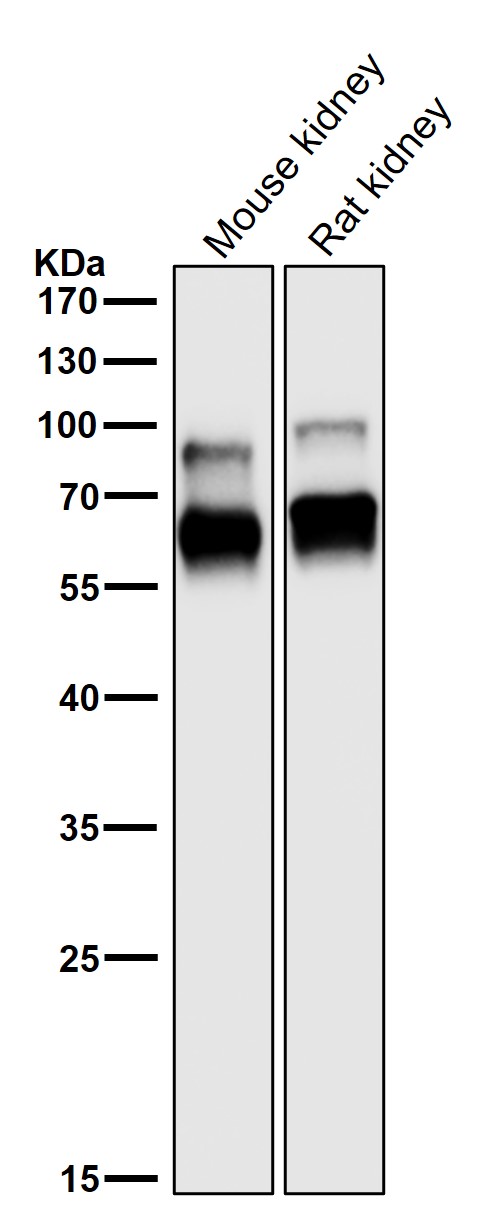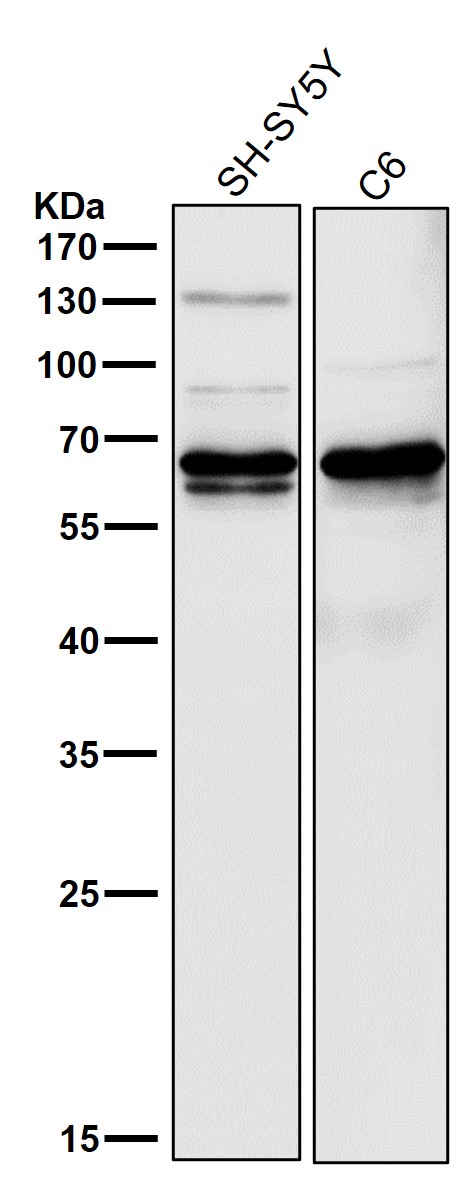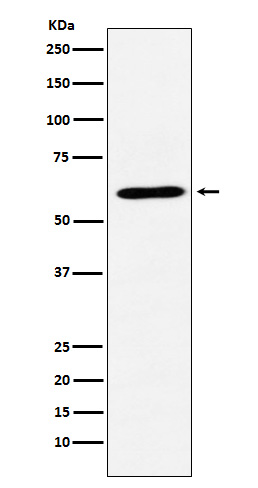


| WB | 咨询技术 | Human,Mouse,Rat |
| IF | 1/20-1/50 | Human,Mouse,Rat |
| IHC | IHC:1/100-1/200;IHF:1/50-1/200 | Human,Mouse,Rat |
| ICC | 1/50-1/200 | Human,Mouse,Rat |
| FCM | 1/20-1/100 | Human,Mouse,Rat |
| Elisa | 咨询技术 | Human,Mouse,Rat |
| Aliases | CRMP 1; Crmp1; DPYSL1; DRP1; ULIP-3; Ulip3;;DRP 1 |
| WB Predicted band size | 62 kDa |
| Host/Isotype | Rabbit IgG |
| Antibody Type | Primary antibody |
| Storage | Store at 4°C short term. Aliquot and store at -20°C long term. Avoid freeze/thaw cycles. |
| Species Reactivity | Human,Mouse,Rat |
| Immunogen | A synthesized peptide derived from human DRP 1 |
| Formulation | Purified antibody in PBS with 0.05% sodium azide,0.05% BSA and 50% glycerol. |
+ +
以下是关于CRMP1抗体的3篇代表性文献及其摘要概括:
---
1. **文献名称**: *Autoantibodies to collapsing response mediator protein-1 (CRMP1) in cerebrospinal fluid of patients with Alzheimer's disease*
**作者**: Yamashita, K. et al.
**摘要**: 该研究检测了阿尔茨海默病患者脑脊液中针对CRMP1的自身抗体水平,发现其表达显著高于健康对照组,提示CRMP1自身抗体可能参与神经退行性病变的免疫反应,并可作为潜在生物标志物。
2. **文献名称**: *CRMP1 phosphorylation regulates axon growth and guidance by modulating microtubule dynamics*
**作者**: Quinn, C.C. et al.
**摘要**: 通过特异性CRMP1抗体研究其磷酸化状态,发现磷酸化修饰影响CRMP1与微管的相互作用,进而调控神经元轴突生长和导向,为神经发育障碍机制提供了新见解。
3. **文献名称**: *CRMP1 as a novel biomarker for lung cancer progression detected by monoclonal antibody-based assays*
**作者**: Zhang, L. et al.
**摘要**: 研究利用CRMP1单克隆抗体开发了ELISA检测方法,发现肺癌患者血清中CRMP1水平升高与肿瘤转移和不良预后相关,支持其作为癌症诊断的潜在标志物。
---
如需具体文献,建议通过PubMed或Sci-Hub输入标题或作者名获取全文。
CRMP1 (Collapsin Response Mediator Protein 1) is a cytosolic phosphoprotein predominantly expressed in the nervous system, belonging to the CRMP family (CRMP1-5). It plays a critical role in neuronal development, including axon guidance, dendritic patterning, and synaptic plasticity by regulating microtubule dynamics and cytoskeletal organization. CRMP1 interacts with signaling pathways such as Semaphorin 3A, which guides axon repulsion during neural circuit formation. Its function is modulated by phosphorylation, particularly through kinases like GSK-3β and Rho kinase, influencing neuronal polarity and migration.
CRMP1 antibodies are essential tools in neuroscience research, used to detect CRMP1 expression and localization in tissues or cells via techniques like Western blot, immunohistochemistry, and immunofluorescence. Dysregulation of CRMP1 has been implicated in neurological and psychiatric disorders, including Alzheimer’s disease, schizophrenia, and epilepsy. For instance, reduced CRMP1 levels correlate with synaptic loss in Alzheimer’s, while aberrant phosphorylation may contribute to cognitive deficits. Additionally, autoantibodies against CRMP1 have been identified in autoimmune conditions such as paraneoplastic neurological syndromes, suggesting its role as an autoantigen.
Research on CRMP1 antibodies also explores their therapeutic potential, such as targeting CRMP1-related pathways to modulate neurodegeneration or enhance neural repair. However, cross-reactivity with other CRMP family members remains a challenge, necessitating careful validation for specificity. Overall, CRMP1 antibodies are vital for unraveling its physiological and pathological mechanisms in neural health and disease. (298 words)
×